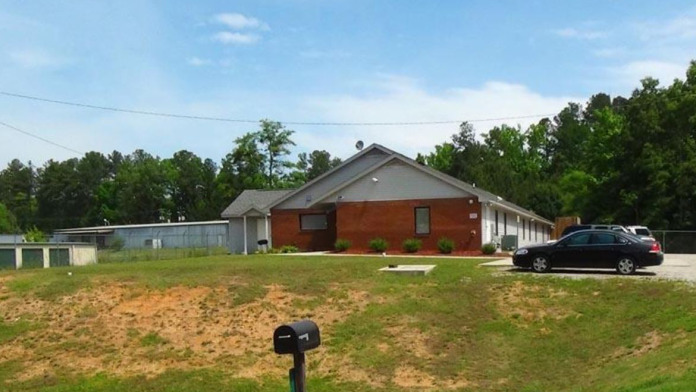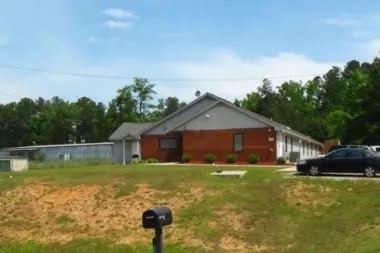About Cornerstone Treatment Facility
The Cornerstone Treatment Facility in Wadesboro is a North Carolina Psychiatric Residential Treatment Facility for adolescent males, ages nine to 17. The facility provides services for psychiatric, behavioral, psychosocial, and educational needs.
Guaranteeing the Safety of Your Child
This facility accepts Medicaid, North Carolina Health Choice, and many other insurance plans. Self-pay arrangement options are available. Safety is ensured with video monitoring, biometric staff recognition equipment, an in-house communication system, and fully integrated magnetic door locking technologies. The facility staff is a qualified team that includes a licensed psychiatrist, mental health professionals, registered nurses, and residential mentors.
Methods to Reduce Urges to Use Substances
The goal for each child is to decrease internal chaos, unsteady emotions, negative moods, impulsivity, confusion about oneself, and relationship difficulties. This is accomplished by increasing interpersonal effectiveness, which involves the interactions one has with others, and emotional regulation. Also addressed is distress tolerance, which is learning the skills to manage emotions and situations. Developing mindfulness skills involves focusing on self-awareness and emotional regulation in present circumstances.
Adolescents accepted to the facility are in need of treatment for personality disorders, depression, anxiety, trauma, stress related disorders, substance abuse, emotional regulation, obsessive-compulsive disorders, or relationship difficulties. Treatment plans are individualized and will be discussed with the child, family, and other entities involved in the process.
Recovery Through CBT
Treatment uses Cognitive Behavior Theory (CBT) which argues that thoughts, emotions, and behaviors are connected. This theory improves overall well-being by reducing negative thought patterns and behaviors.
The treatment lasts for six to nine months and is offered to adolescents who are unable to cope with emotions or show behaviors that could cause injury or be life-threatening. The facility asserts that disciplinary actions will not include physical punishment, exploitation, retaliation, humiliation, or personal searches except for critical circumstances, or threats of suspension or expulsion.
Latest Reviews
Rehab Score
Gallery


Other Forms of Payment
Medicaid is a state based program that helps lower-income individuals and families pay for healthcare. Medicaid covers addiction treatment so those enrolled can use their coverage to pay for rehab. When a program accepts Medicaid the client often pays very little or nothing out of their own pocket.
Self-pay involves paying for treatment out of your own pocket. You can use savings or credit, get a personal loan, or receive help from family and friends to fund your treatment. If you don't have insurance or your insurance plan doesn't cover a specific program, self-pay can help ensure you still get the care you need.
Financial aid can take many forms. Centers may have grants or scholarships available to clients who meet eligibility requirements. Programs that receive SAMHSA grants may have financial aid available for those who need treatment as well. Grants and scholarships can help you pai for treatment without having to repay.
Medicare is a federal program that provides health insurance for those 65 and older. It also serves people under 65 with chronic and disabling health challenges. To use Medicare for addiction treatment you need to find a program that accepts Medicare and is in network with your plan. Out of pocket costs and preauthorization requirements vary, so always check with your provider.
Addiction Treatments
Levels of Care
Residential treatment programs are those that offer housing and meals in addition to substance abuse treatment. Rehab facilities that offer residential treatment allow patients to focus solely on recovery, in an environment totally separate from their lives. Some rehab centers specialize in short-term residential treatment (a few days to a week or two), while others solely provide treatment on a long-term basis (several weeks to months). Some offer both, and tailor treatment to the patient's individual requirements.
Treatments
Many of those suffering from addiction also suffer from mental or emotional illnesses like schizophrenia, bipolar disorder, depression, or anxiety disorders. Rehab and other substance abuse facilities treating those with a dual diagnosis or co-occurring disorder administer psychiatric treatment to address the person's mental health issue in addition to drug and alcohol rehabilitation.
Mental health rehabs focus on helping individuals recover from mental illnesses like bipolar disorder, clinical depression, anxiety disorders, schizophrenia, and more. Mental health professionals at these facilities are trained to understand and treat mental health issues, both in individual and group settings.
Clinical Services
Cognitive Behavioral Therapy (CBT) is a therapy modality that focuses on the relationship between one's thoughts, feelings, and behaviors. It is used to establish and allow for healthy responses to thoughts and feelings (instead of unhealthy responses, like using drugs or alcohol). CBT has been proven effective for recovering addicts of all kinds, and is used to strengthen a patient's own self-awareness and ability to self-regulate. CBT allows individuals to monitor their own emotional state, become more adept at communicating with others, and manage stress without needing to engage in substance abuse.
Whether a marriage or other committed relationship, an intimate partnership is one of the most important aspects of a person's life. Drug and alcohol addiction affects both members of a couple in deep and meaningful ways, as does rehab and recovery. Couples therapy and other couples-focused treatment programs are significant parts of exploring triggers of addiction, as well as learning how to build healthy patterns to support ongoing sobriety.
Research clearly demonstrates that recovery is far more successful and sustainable when loved ones like family members participate in rehab and substance abuse treatment. Genetic factors may be at play when it comes to drug and alcohol addiction, as well as mental health issues. Family dynamics often play a critical role in addiction triggers, and if properly educated, family members can be a strong source of support when it comes to rehabilitation.
Group therapy is any therapeutic work that happens in a group (not one-on-one). There are a number of different group therapy modalities, including support groups, experiential therapy, psycho-education, and more. Group therapy involves treatment as well as processing interaction between group members.
In individual therapy, a patient meets one-on-one with a trained psychologist or counselor. Therapy is a pivotal part of effective substance abuse treatment, as it often covers root causes of addiction, including challenges faced by the patient in their social, family, and work/school life.
Trauma therapy addresses traumatic incidents from a client's past that are likely affecting their present-day experience. Trauma is often one of the primary triggers and potential causes of addiction, and can stem from child sexual abuse, domestic violence, having a parent with a mental illness, losing one or both parents at a young age, teenage or adult sexual assault, or any number of other factors. The purpose of trauma therapy is to allow a patient to process trauma and move through and past it, with the help of trained and compassionate mental health professionals.
Staff
Fred Surgeon, MPA, QP
CEO
Hillary Rumppe
VP of Administration
Debbie Atkinson
Director of Admissions and Referral Services
Michael McNeil
Director of Operations
Contact Information
129 Wallace Road
Wadesboro, NC 28170